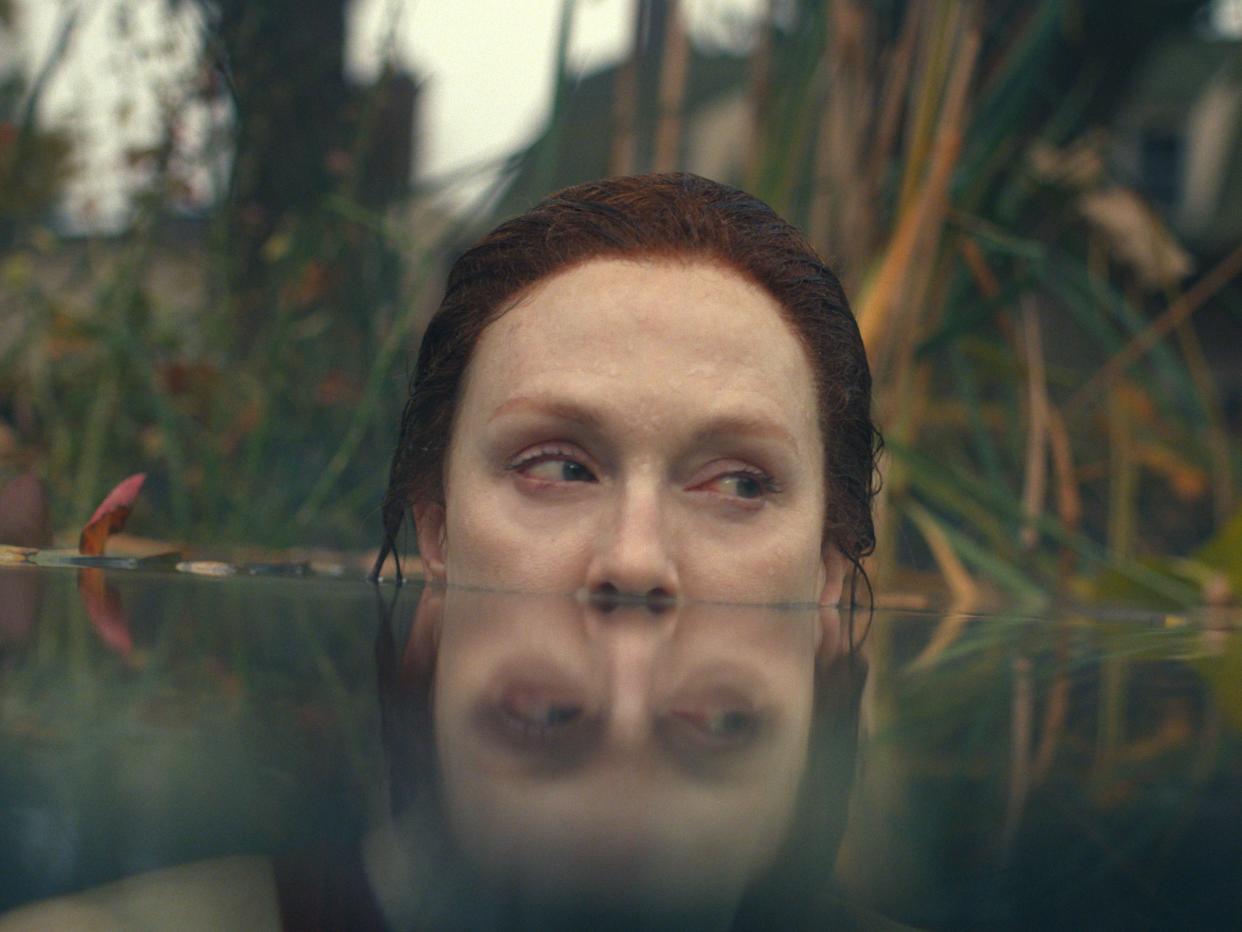Lisey’s Story, review: Stephen King adaptation has plenty of misery, but no surprises

Submerged: Julianne Moore as Lisey in Apple TV+’s new Stephen King adaptation ‘Lisey’s Story’
(Apple TV+)The first episode of Lisey’s Story opens with an epigraph, attributed to the fictional author Scott Landon: “Every marriage keeps its own secrets.” It’s banal but mysterious – a familiar mix for Stephen King, who often constructs his horror in deceptively ordinary settings. Apple TV+’s eight-part miniseries draws from King’s 2006 novel of the same name, with King serving as screenwriter and Pablo Larraín (Jackie) directing every episode. But while Lisey’s Story gives viewers their fill of secrets, it struggles to create a mystery that people will have any interest in solving.
Julianne Moore plays Lisey (rhymes with “greasy”), the widow of successful author Scott Landon (Clive Owen). Lisey’s Story flits dreamily around the timeline of her life, from her marriage to Scott, to her bleaker modern reality. She has two sisters, Darla (Jennifer Jason Leigh) and Amanda (Joan Allen, playing nicely against type), the latter of whom is dangerously unstable; in one of the series’ very first scenes, we see her smash a piece of crockery to pieces, rubbing her bloody hands among the shards. Shortly after, we see Scott converse with Amanda. Is this a dream or an apparition? We don’t know – but it’s clear that Scott’s death wasn’t quite the end of him.
Lisey also has to deal with the persistent professional advances of Professor Dashmiel (Ron Cephas Jones), who’s after her husband’s unpublished work. Dashmiel turns to sinister contractor Jim Dooley (Dane DeHaan) for help, and Dooley begins stalking Lisey with a near Jack Torrence-like intensity.
There’s a lot of talent in the cast, and Moore makes a decent go of it, but the script pushes everyone to such hysterical extremes from the off that it’s hard to find much to connect to. Owen and Leigh also exude star power, but struggle to find what is interesting or exceptional about the characters. DeHaan gives by far the most interesting performance, though it’d be a stretch to call it good exactly. Dooley speaks in relentless monotone, an anti-charismatic oddball – but the characterisation sometimes comes across as too contrived to be unnerving.
Larraín is a great director, but the greatness here surfaces only in brief flashes. There are similarities with his razor-sharp, claustrophobic Jackie Kennedy biopic, another work about grief and marriage, but here, everything’s too big, too melodramatic. King’s writing here is often bereft of nuance or intrigue, especially when bluntly moving the convoluted plot along.
At his core, King is a man of high concepts; his most enduring stories are ones that can be summed up in a mere sentence, sometimes just two words (“evil car”; “obsessed fan”). There is no great hook to Lisey’s Story, however, nothing that really distinguishes it from the rest of his oeuvre. Instead, we find a host of familiar ideas, recycled and repeated, only louder than before.
Read More
Stephen King reveals how own near-death experience inspired new series Lisey’s Story
The unbelievable story behind Woman in the Window author Dan Mallory
Joey Essex: Grief and Me review – The reality star grapples with the trauma of his mother’s suicide


